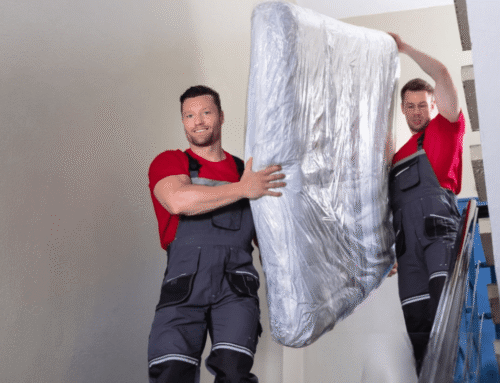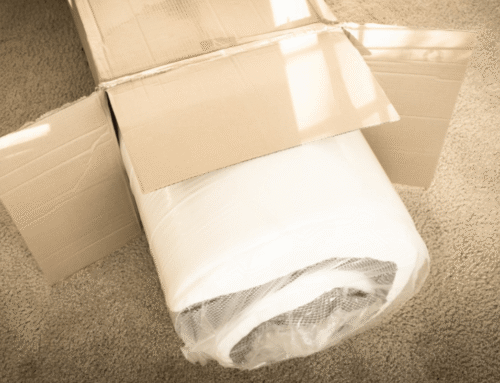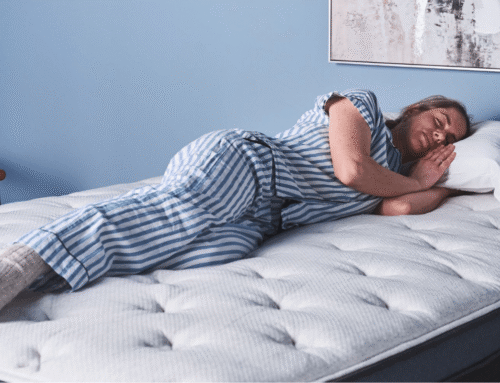A mattress should feel good and support your body at the same time. A soft one has a cozy feel, which is better for side sleepers who need extra cushion for their shoulders and hips. A firm one gives more support that helps back and stomach sleepers keep their spine in line. A medium-firm mattress blends softness and support, great for people who switch positions at night. Heavier sleepers may need something firmer, while lighter ones often prefer a softer feel. Comfort depends on how you sleep and what feels best for your body.
In this guide, we’ll break down soft, medium, and firm mattresses to help you choose. Each type has its benefits and downsides, so knowing the difference makes a big impact. Sleeping on the right mattress helps you feel comfortable and well-supported.
Key Takeaways
- Medium soft mattresses provide plush comfort with enough support to keep the spine aligned, ideal for side sleepers.
- Side sleepers benefit from extra cushioning at pressure points like shoulders and hips, as it reduces discomfort.
- Lighter individuals under 130 pounds prefer soft mattresses to prevent sinking while maintaining spinal support.
- Memory foam and hybrid mattresses minimize motion transfer to ensure a peaceful sleep for couples.
- Different mattress types like memory foam, latex, and hybrids provide varied softness and support to suit different sleep styles.

What Is Mattress Firmness?
Firmness is how hard or soft a mattress feels when you lie down, usually rated on a scale from 1 to 10. A lower number feels soft and plush, while a higher number feels firm and supportive. Most mattresses fall somewhere in the middle for a mix of comfort and support. A soft mattress, around 3-4, sinks in more and cushions pressure points. Medium firmness, around 5-6, has a balance of softness and support. A firm mattress, around 7-9, keeps you from sinking too much and feels more solid.
The best choice depends on your weight, sleep position, and what feels good to you. Side sleepers usually like softer beds for less pressure on shoulders and hips. Back and stomach sleepers often need firmer ones to keep the spine aligned.
Soft Mattresses (Plush Feel)
This type of bed feels soft and hugs your body, which helps relieve pressure on your shoulders and hips. Side sleepers usually find it comfortable since it cushions the body well. If you like a plush and sinking feel, this can be a cozy choice. Back and stomach sleepers might not get enough support since a softer bed can throw off spinal alignment. Heavier individuals could sink too much, which may cause discomfort over time. A firmer mattress might be a better option for proper support.
Some soft beds trap heat, especially memory foam without cooling features. Breathable materials or gel-infused foam can help you stay cooler at night. If you sleep warm, look for one with good airflow to stay comfortable.
Medium Mattresses (Balanced Feel)
A medium mattress gives just enough softness for pressure relief without losing support. It’s a great choice if you shift positions at night or share a bed with someone who has different sleep habits. The balance of cushioning and stability works well for a wide range of sleepers.
Characteristics:
- Blends contouring and support for a comfortable feel.
- Supports most sleep positions, including back, side, and stomach.
- A good option for couples with different sleep needs.
Potential Downsides:
- Some stomach sleepers or heavier individuals may prefer a firmer feel.
- Does not relieve pressure as much as a softer mattress.
Medium mattresses provide a nice balance, but some people want a little more softness without giving up support. A medium soft mattress is good as it has extra cushioning while still feeling supportive. It’s a great option for those who like a soft and plush feel but don’t want to sink in too much.
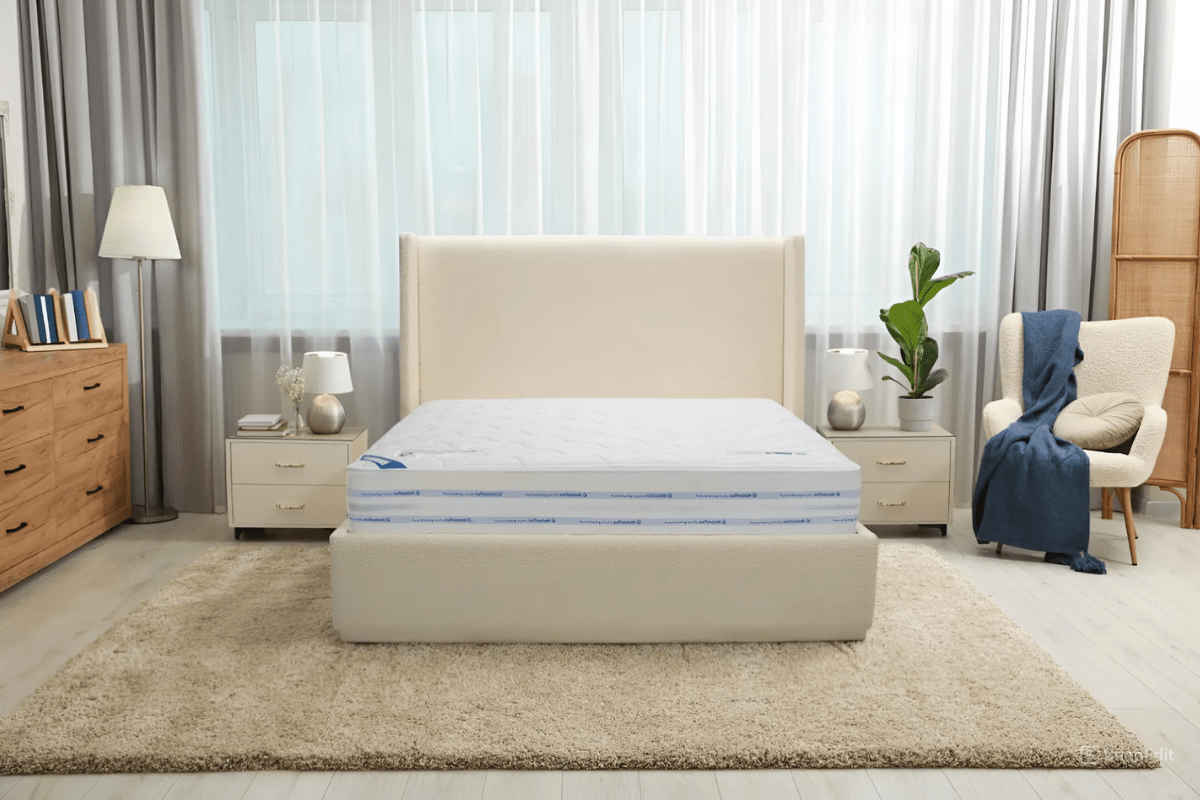
Firm Mattresses (Supportive Feel)
A firm mattress gives you a sturdy surface that keeps your body well-supported. Instead of sinking in, you stay on top, which helps keep your spine straight. If you sleep on your stomach or back, the extra support helps prevent strain and keeps you comfortable through the night. A firm bed can feel too stiff if you are lighter or sleep on your side. Without much cushioning, pressure can build up around your shoulders and hips, which might cause discomfort. If you like a softer and more cushioned feel, a firm mattress might not give you the coziness you need.
Heavier sleepers usually find firm mattresses more comfortable since the extra support helps distribute weight evenly. A softer bed can sag under more pressure, which might cause back pain over time. With the right balance of comfort and stability, a firm mattress can improve sleep quality and help with better posture.
Check for Special Needs
If your back hurts, a medium-firm mattress usually gives good support without feeling too stiff. A soft one lets your body sink too much, which can strain your spine. A very firm one might not cushion your joints, so balance is key for comfort. But what if you prefer something in between? Who should sleep on a medium-soft mattress, and is a medium-soft or firm mattress better for back pain? Is a medium-soft mattress good for side sleepers, or is a medium-soft or medium mattress better for back pain? The best choice really comes down to what feels comfortable for your body and gives you the right mix of support and softness for a comfortable sleep.
Sleeping hot can be frustrating, especially if the mattress traps heat all night. Firmer options with breathable materials, like latex or gel-infused foam, let air move better. Hybrid beds with coils help since the gaps between springs allow heat to escape.
Personal comfort matters more than labels or marketing. Some people with joint pain sleep better on a soft mattress, while others feel more supported on a firm one. Trying different types and checking return policies help you find something that feels right long-term.
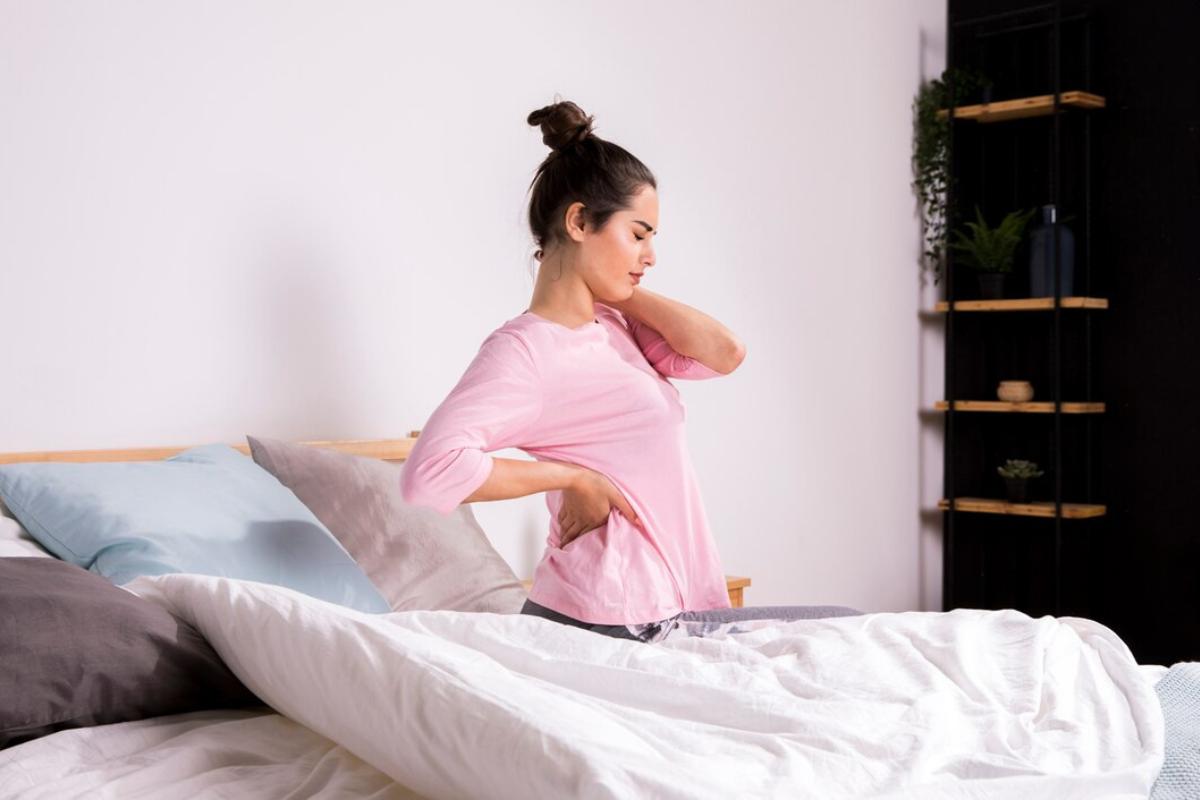
Consider Your Sleeping Position
Your sleeping position affects your sleep quality. Side sleepers usually need a soft to medium mattress since a firmer surface can put too much pressure on the shoulders and hips. A cushioned feel helps keep the spine aligned without waking up sore.
Back sleepers benefit from medium to firm support since a mattress that’s too soft can cause the lower back to sink. A balanced surface keeps the spine in a neutral position and prevents stiffness in the morning.
Stomach sleepers tend to feel better on a firm mattress since a softer one can cause the midsection to dip too much. Extra support helps keep the back from arching, which reduces strain on the spine. A stable surface can prevent discomfort, especially for those who sleep on their stomach all night.
Your Body Weight
If you weigh less than 130 pounds, a soft mattress gives enough cushion so you don’t feel like you’re lying on a hard surface. A firmer one might not let you sink in enough, which can create pressure points. A plush bed helps your body relax and reduces stiffness in the morning.
For those between 130-230 pounds, a medium mattress keeps things balanced by giving both support and comfort. It contours to your body without feeling too soft or too firm. A softer bed might cause your back to sink, while a firmer one can put too much pressure on your joints.
If you’re over 230 pounds, a firm mattress gives the right support so your body stays in a good position. A soft one might feel comfortable at first, but it can sink too much over time. A firmer surface keeps your spine aligned and helps prevent back pain.
Can a Mattress be Both Soft and Supportive?
Yes, some mattresses feel soft on top while staying firm underneath, which gives comfort and support at the same time. A plush surface helps you relax, while a sturdy base keeps your body in a good position. This is great if you like a cozy feel but still need proper support.
A high-quality mattress lets you sink just enough without feeling stuck, so you stay comfortable in any sleeping position. The mix of softness and firmness helps relieve pressure on your shoulders and hips. It also keeps your spine aligned, which can prevent aches and stiffness. Not every soft bed lacks support, and not every firm one feels too hard. The right balance of materials creates a mattress that feels both cushioned and stable. If you want a bed that’s both cozy and supportive, a hybrid or foam mattress with good structure could be a great choice.
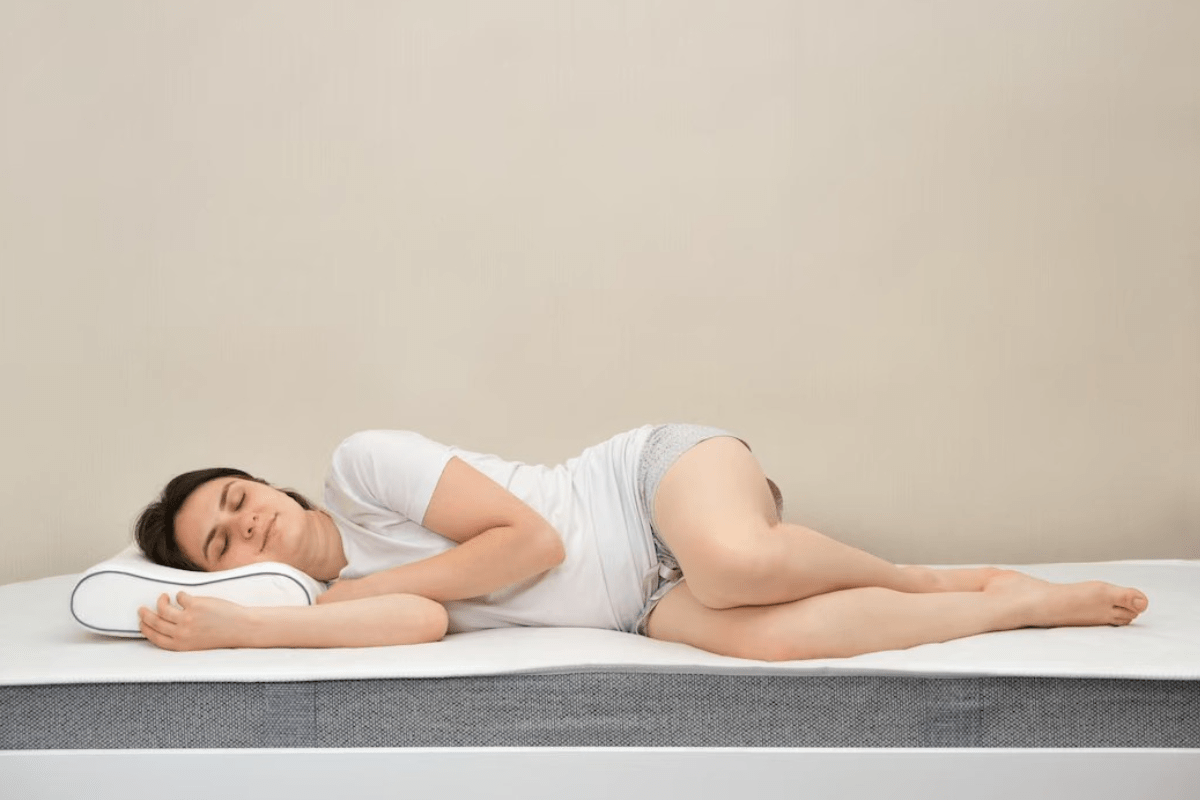
What If I Choose the Wrong Firmness?
It’s normal to worry about choosing the right mattress, but a trial period helps take off the pressure. Most brands let you test it for at least 100 nights and give you time to see if it feels good. If it’s too firm or too soft, you can usually exchange it or get a refund.
Your body might need a few weeks to get used to a new mattress, so don’t rush to decide. A firm one can feel too hard at first but soften a little as you break it in. A softer one might seem fine at first but lose support as time goes on, which can cause discomfort. But what if you’re stuck between two options? Which is right for you, medium firm or medium soft mattress, and is it better to sleep on a medium soft or firm mattress? The best choice depends on your comfort preferences, support needs, and how your body responds over time.
If it still doesn’t feel right after trying it for a while, check the brand’s return policy. Some let you exchange for a different firmness, and others give full refunds with no extra cost. Just keep track of the trial period, so you don’t run out of time.
Final Thoughts
A soft mattress is great if you like a plush feel with extra cushioning. It gently hugs your body and helps with pressure on your shoulders and hips. Side sleepers and lighter individuals often find it the most comfortable.
A medium mattress gives a mix of softness and support, which benefits different sleep positions. It has enough cushion for side sleeping while keeping the spine aligned for back sleepers. Couples often prefer it since it suits most body types.
A firm mattress gives strong support and prevents sinking too much. It helps keep your back straight, which is great if you sleep on your stomach or back. Heavier sleepers also find it more comfortable since it reduces lower back strain.
If you are unsure, choose a mattress with a sleep trial so you can see if it feels right at home. Testing it for a few weeks helps you know if it gives enough support and comfort. The right mattress should let you wake up feeling rested and free from aches. Sleep needs are different for everyone, so focus on what feels best for your body.

